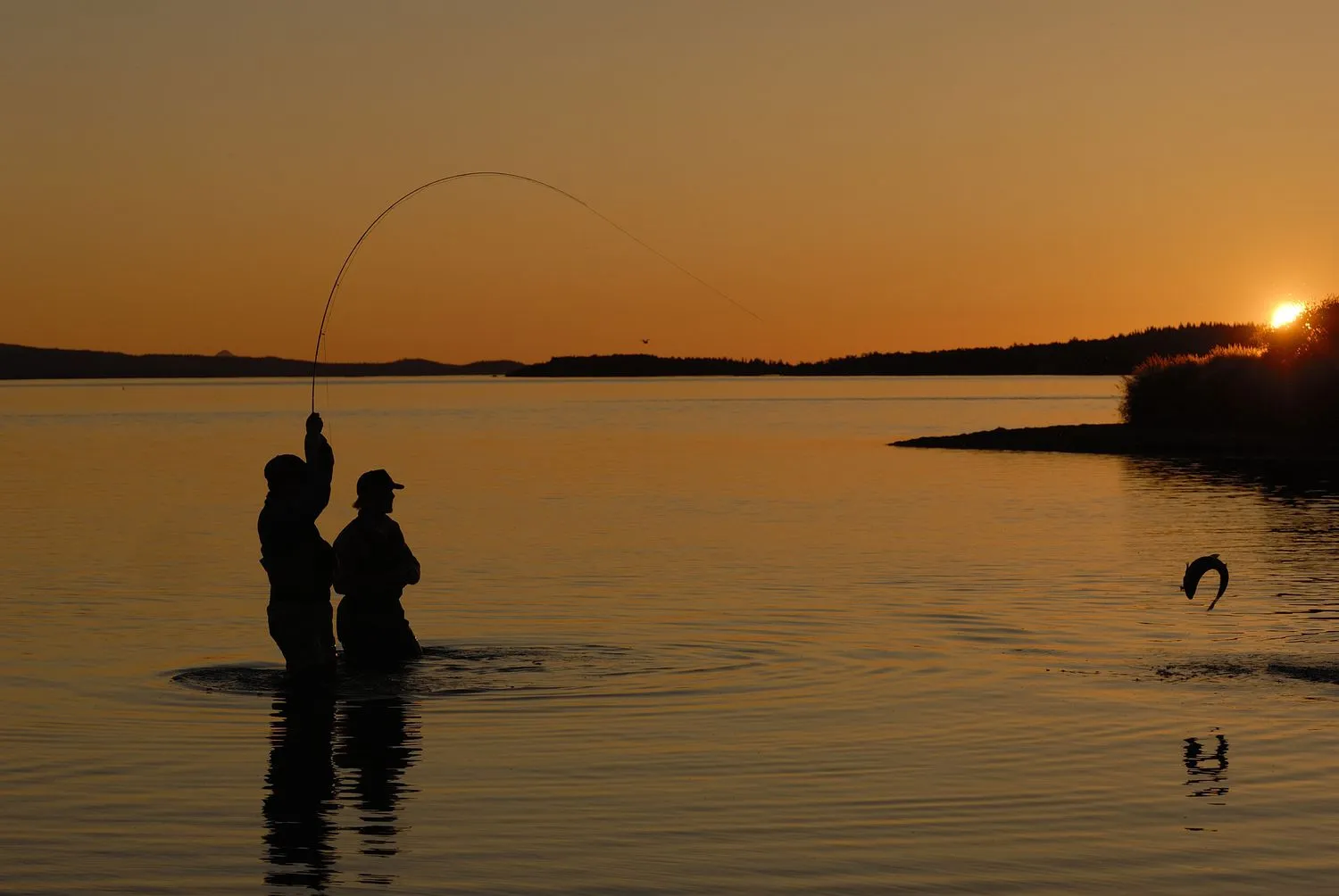For years, Acadia National Park has been my sanctuary, a place where rugged coastlines meet tranquil forests and the salty air invigorates the soul. While many are drawn to its iconic hiking trails and breathtaking vistas, I find myself perpetually lured back by another of Acadia’s hidden gems: its exceptional fishing.
From the serene stillness of Jordan Pond to the crashing waves of the Atlantic, Acadia offers a diverse and rewarding experience for anglers of all levels. This is more than just a fishing guide; it’s a glimpse into my personal connection with this park, a sharing of the secret spots and hard-earned wisdom that have made my Acadia National Park fishing adventures so unforgettable. Whether you’re a seasoned angler or just starting out, join me as we explore the diverse waters of Acadia, from the best locations to the necessary permits, and discover why this park holds a special place in the hearts of those who cast a line amidst its stunning beauty.
So, if you are an outdoor enthusiast and are about to get a chance to visit Acadia National Park, let me guide you through the following post at nationalparkshops.com!
Acadia National Park Fishing Overview
Acadia National Park, located along the stunning coast of Maine, is a treasure trove for outdoor enthusiasts, particularly those who enjoy fishing. Spanning over 49,000 acres, the park features a diverse landscape that includes rugged shorelines, tranquil lakes in Acadia, and lush forests. This rich variety of ecosystems creates an ideal environment for both freshwater and saltwater fishing, attracting anglers from all over the country.
Fishing in Acadia is not just about catching fish; it’s about immersing yourself in the breathtaking natural beauty that surrounds you. From the serene sounds of nature to the picturesque views of the Atlantic Ocean and the park’s iconic mountains, every fishing trip can become a memorable adventure. Whether you are a seasoned angler or a beginner looking to cast your first line, Acadia National Park offers something for everyone.
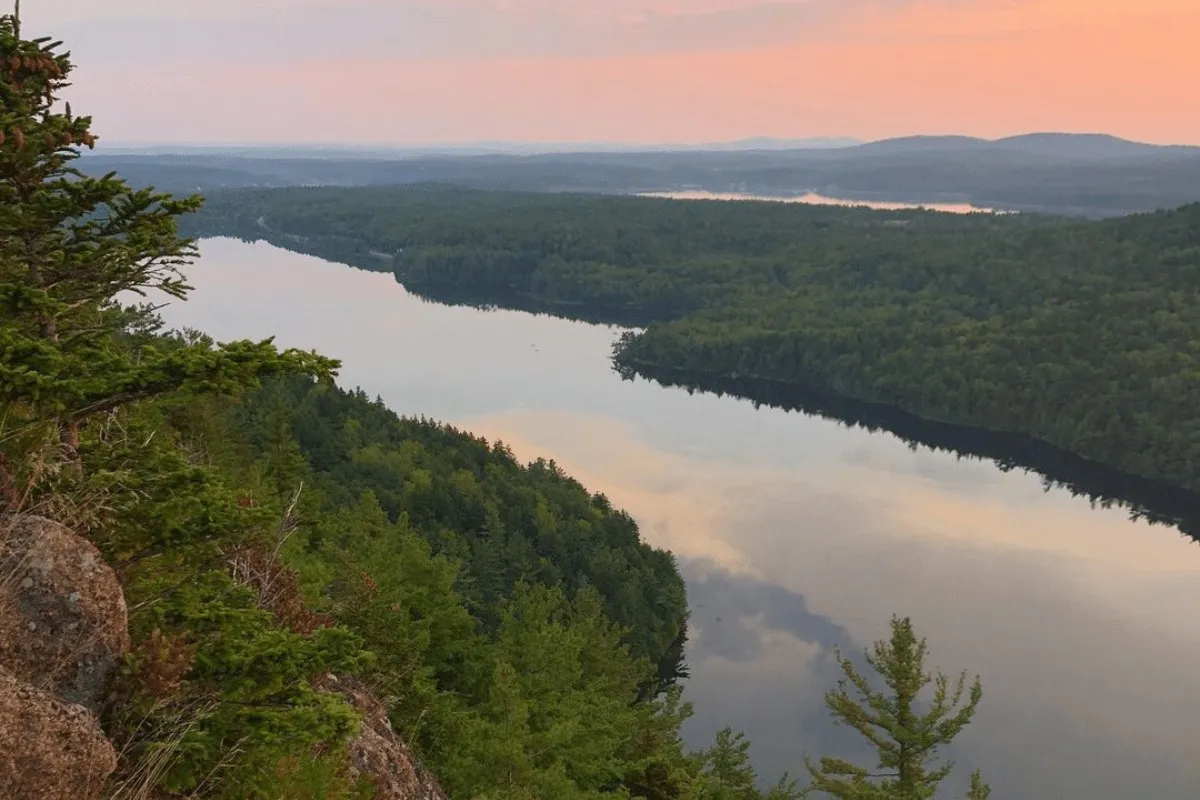
Best Fishing spots in Acadia National Park
As always, where you fish is important to the angler. While Acadia has a vast network of lakes and ponds, here are the best places to visit in Acadia National Park when you’re looking to cast a line. Follow me!
Echo Lake
Echo Lake is a true gem nestled within Acadia National Park, and for an angler like me, it’s a slice of paradise. The first thing that strikes you is the sheer beauty of the place – the water is so clear you can see the pebbles on the bottom, and the surrounding mountains create a dramatic backdrop that takes your breath away. It’s the kind of place that makes you feel instantly at peace, even before you’ve cast your first line.
And the Acadia National Park fishing? Well, it certainly doesn’t disappoint. Echo Lake is teeming with brook trout and landlocked salmon and I’ve had some of my most memorable catches here. Early mornings and late afternoons are particularly magical, with the sun casting long shadows across the water and the fish rising to the surface. Whether you’re wading in from the shore or casting a fly from a quiet cove, there’s a sense of tranquility that’s hard to find elsewhere. The park has thoughtfully provided several access points around the lake, making it easy to find your perfect spot.
For those who prefer a more active approach, there are also opportunities for Acadia National Park kayaking and canoeing, allowing you to explore different areas and find hidden fishing holes. Whether you’re a seasoned pro or just starting out, Echo Lake is an experience not to be missed. It’s a place where the beauty of the surroundings is only surpassed by the thrill of the catch, a true testament to the magic of Acadia National Park.
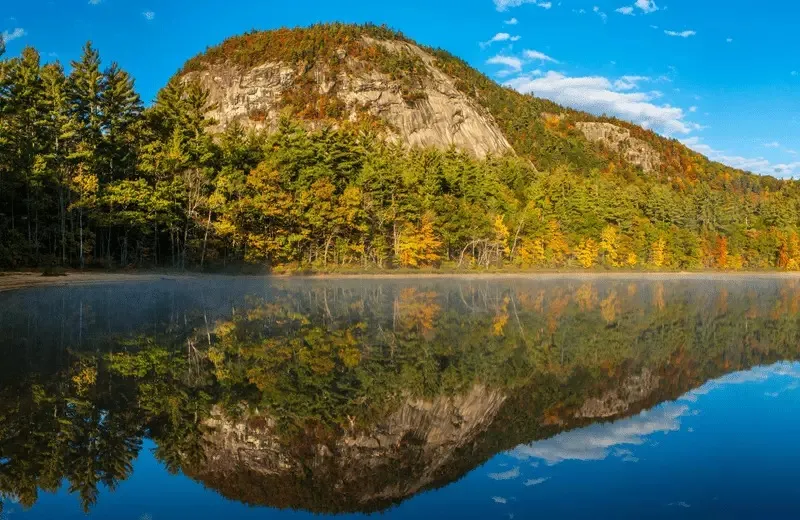
Long Pond
f you’re looking for a truly serene and rewarding fishing experience in Acadia National Park, Long Pond should be at the top of your list. Well, let’s just say Long Pond lives up to its reputation. It’s renowned for its healthy population of brook trout, and I’ve personally had some of my most successful fishing trips here. The abundance of these beautiful fish makes for an exciting and rewarding experience, whether you’re a seasoned angler or just starting out. The calm waters are perfect for casting a line, and the surrounding trees provide ample shade on sunny days. You can easily lose yourself for hours, casting your line and enjoying the peaceful surroundings.
Long Pond is more than just an Acadia National Park fishing spot, it’s an experience. It’s a place where you can immerse yourself in the beauty of Acadia National Park, reconnect with nature, and enjoy some truly fantastic fishing. If you’re planning a trip to Acadia, be sure to add Long Pond to your itinerary – you won’t be disappointed.
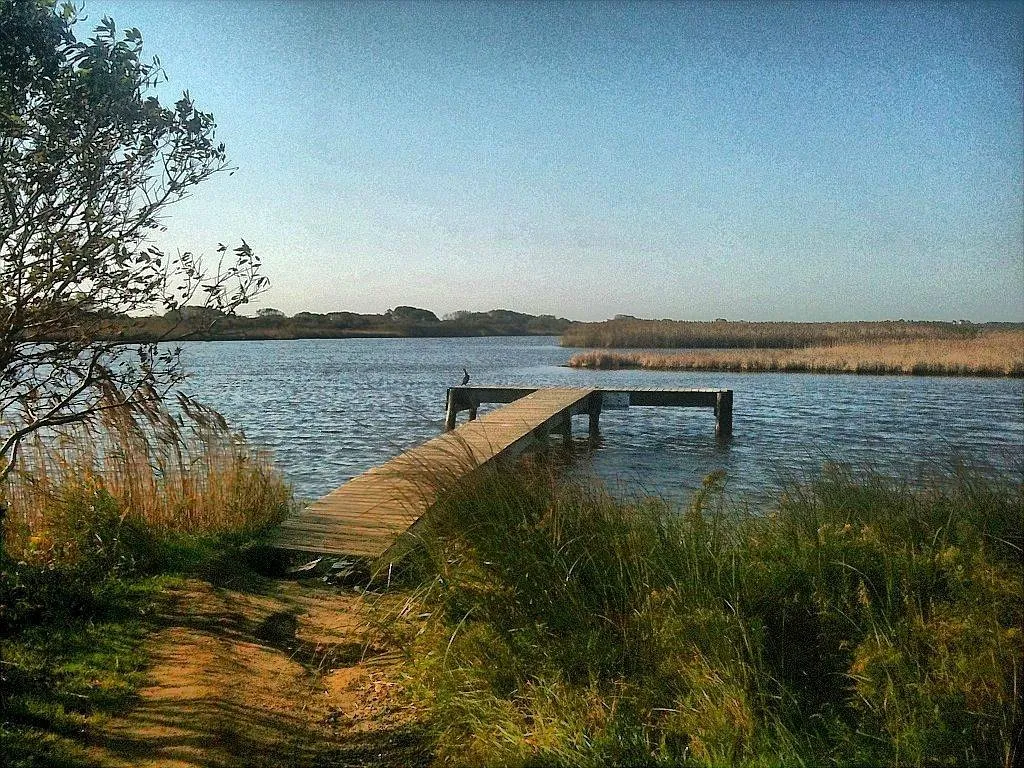
Seal Cove Pond
For those seeking a more secluded Acadia National Park fishing experience, Seal Cove Pond is a suitable place. This small pond is less frequented by tourists, providing a peaceful environment for anglers to enjoy. The pond is home to brook trout, and its serene surroundings make it a great spot for relaxation and fishing. The tranquility of Seal Cove Pond, combined with the surrounding natural beauty, creates an idyllic setting for those looking to escape the crowds.
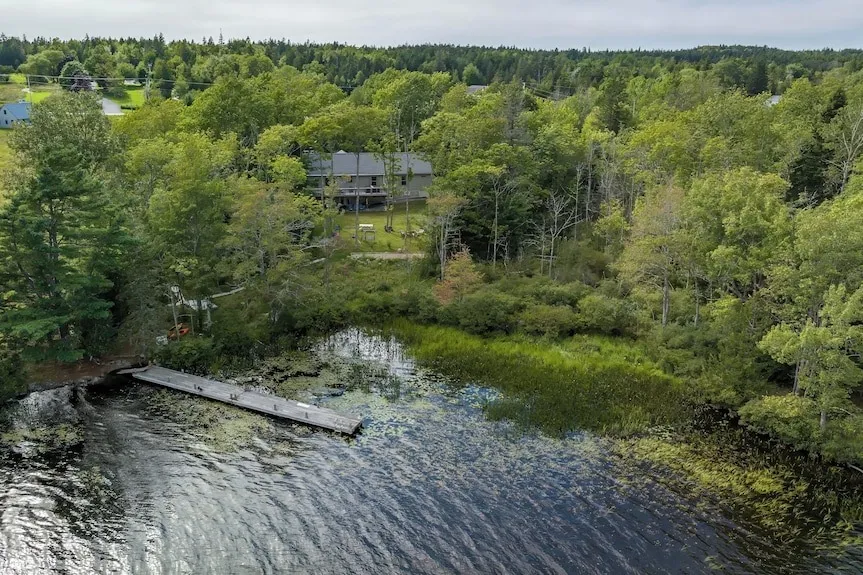
Eagle Lake
Eagle Lake is one of the largest freshwater bodies and offers ample opportunities for Acadia National Park fishing. Eagle Lake is a haven for a variety of species, including both largemouth and smallmouth bass, brook trout, and landlocked salmon. This diversity makes it an exciting destination for anglers of all skill levels. The lake’s varying depths and habitats cater to different species, so you can experiment with various techniques and locations to find your perfect catch.
One of the things I appreciate most about Eagle Lake is its accessibility. While some areas, particularly along the western shore, offer a more rugged and secluded experience, there are also plenty of easily accessible spots perfect for families and beginners. The park has thoughtfully provided designated fishing areas with ample parking and convenient access to the water’s edge. This makes it easy for everyone to enjoy the thrill of casting a line and soaking in the breathtaking scenery.
And speaking of scenery, Eagle Lake boasts some of the most stunning vistas in Acadia National Park. As you cast your line, you’ll be surrounded by towering mountains in Acadia Nation Park, lush forests, and the tranquil expanse of the lake itself. It’s a truly immersive experience that connects you with the raw beauty of the park.
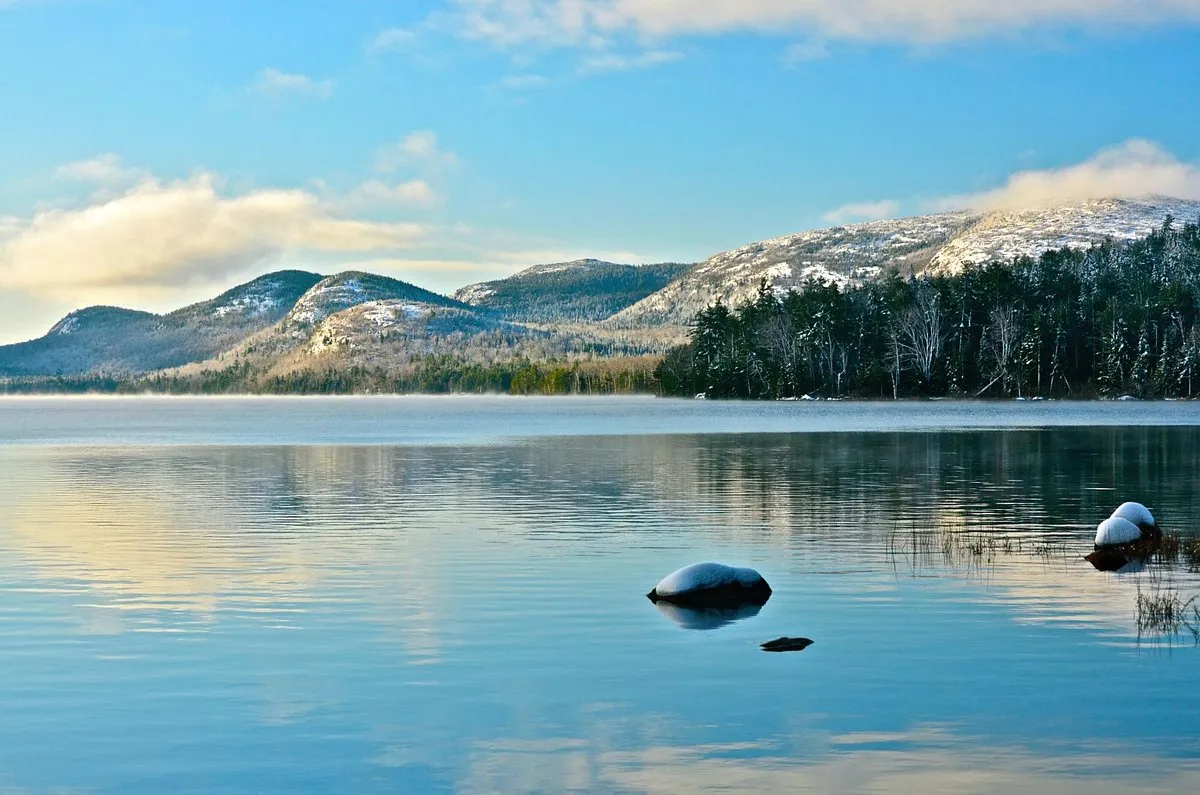
Bar Harbor
For saltwater fishing enthusiasts, Bar Harbor serves as the gateway to the Atlantic Ocean. This vibrant coastal town is not only a hub for tourism but also a prime location for saltwater fishing. Anglers can charter boats for deep-sea fishing adventures or try their luck from the shore. The waters off Bar Harbor are teeming with a variety of fish species, including mackerel, striped bass, and even the occasional tuna for those willing to venture further out. The combination of Acadia National Park fishing and the stunning coastal views makes Bar Harbor a popular destination for anglers.
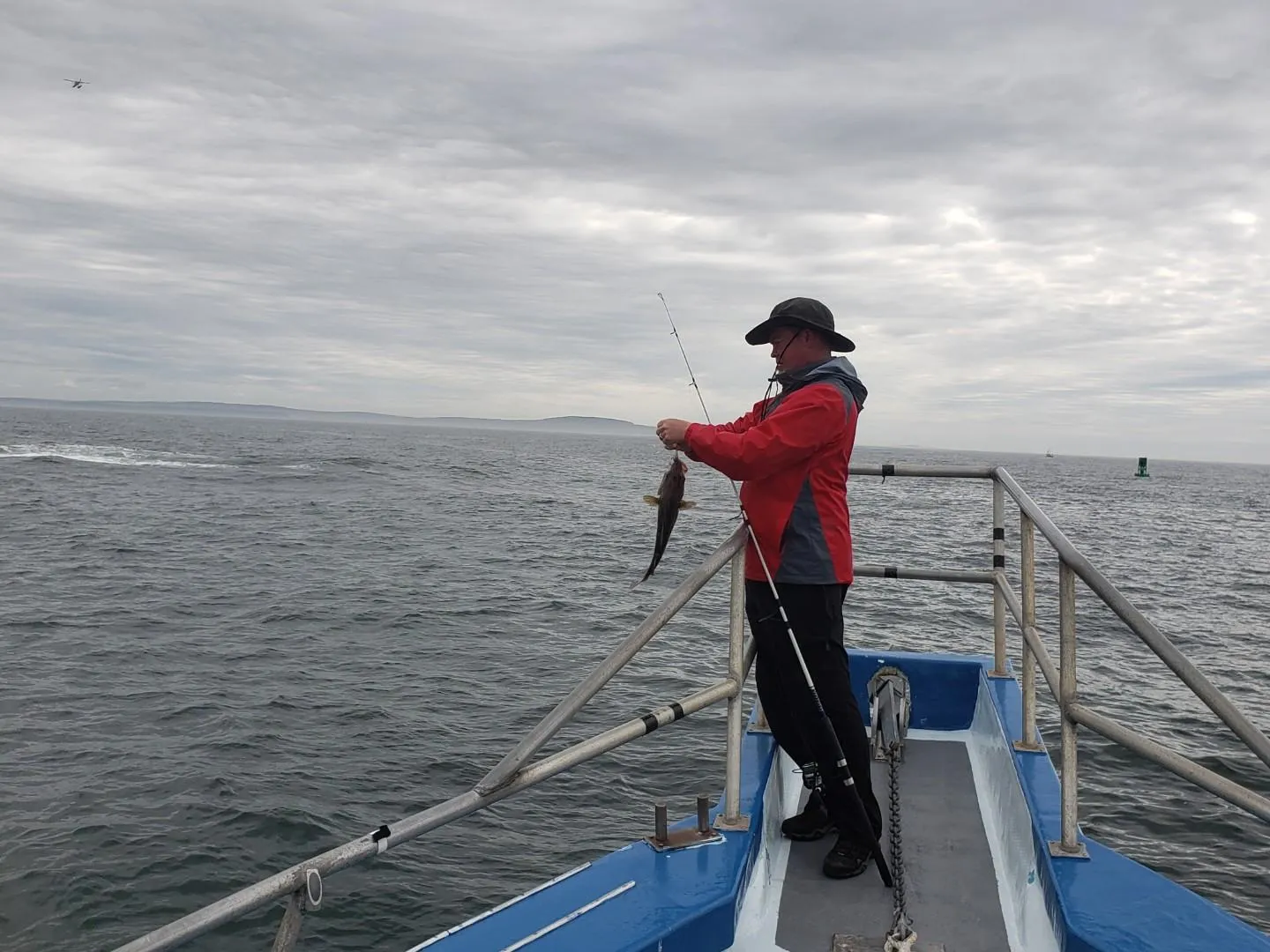
What are the popular types of fishing in Acadia National Park?
The two most popular types of Acadia National Park fishing (but I think they are the same in all National Parks) are Freshwater Fishing and Saltwater Fishing. I’ll explain more about these two types of fishing, including the best spots for each.
Freshwater fishing
Acadia National Park is a haven for freshwater fishing enthusiasts, boasting a variety of picturesque lakes and streams that promise both accessibility and scenic beauty. Among the most popular spots are Jordan Pond, Eagle Lake, and Witch Hole Pond, each renowned for their serene settings and ease of access. These waters are teeming with a diverse array of fish species, making every angling expedition an exciting endeavor. Acadia National Park fishing can expect to catch brook trout, lake trout, brown trout, and landlocked salmon, while smallmouth and largemouth bass are also prevalent in the park’s abundant lakes and ponds.
Saltwater fishing
For those who prefer the thrill of saltwater fishing, Acadia National Park’s rugged coastline offers a wealth of exciting opportunities. The park’s coastal regions, including the picturesque Frenchman Bay and the dramatic Schoodic Peninsula, are teeming with a variety of sought-after species. Anglers casting their lines into these vibrant waters can expect to encounter feisty mackerel, hard-fighting bluefish, and the prized striped bass, particularly during the late summer and early fall months when these fish are most abundant. Whether you’re casting from the shore, exploring the rocky inlets, or venturing further out by boat, the saltwater Acadia National Park fishing scene promises an unforgettable adventure amidst breathtaking coastal scenery.
Common Fish species in Acadia National Park
Acadia National Park is home to a variety of fish species, making it an exciting destination for anglers. Here are some of the common species you can expect to encounter (This is the information I updated from reputable news sites on the internet so I think we can trust it.):
- Brook Trout: A popular target for freshwater anglers, brook trout are abundant in the park’s lakes and ponds, particularly in Echo Lake and Long Pond.
- Landlocked Salmon: Found in some of the park’s larger freshwater bodies, landlocked salmon provide a thrilling challenge for anglers.
- Bass: Both largemouth and smallmouth bass can be found in various lakes, including Eagle Lake, making it a great spot for bass fishing.
- Mackerel: These fast-swimming fish are commonly caught in the saltwater off Bar Harbor, especially during the summer months.
- Striped Bass: Another popular saltwater species, striped bass can be found in the coastal waters and are known for their strong fight.
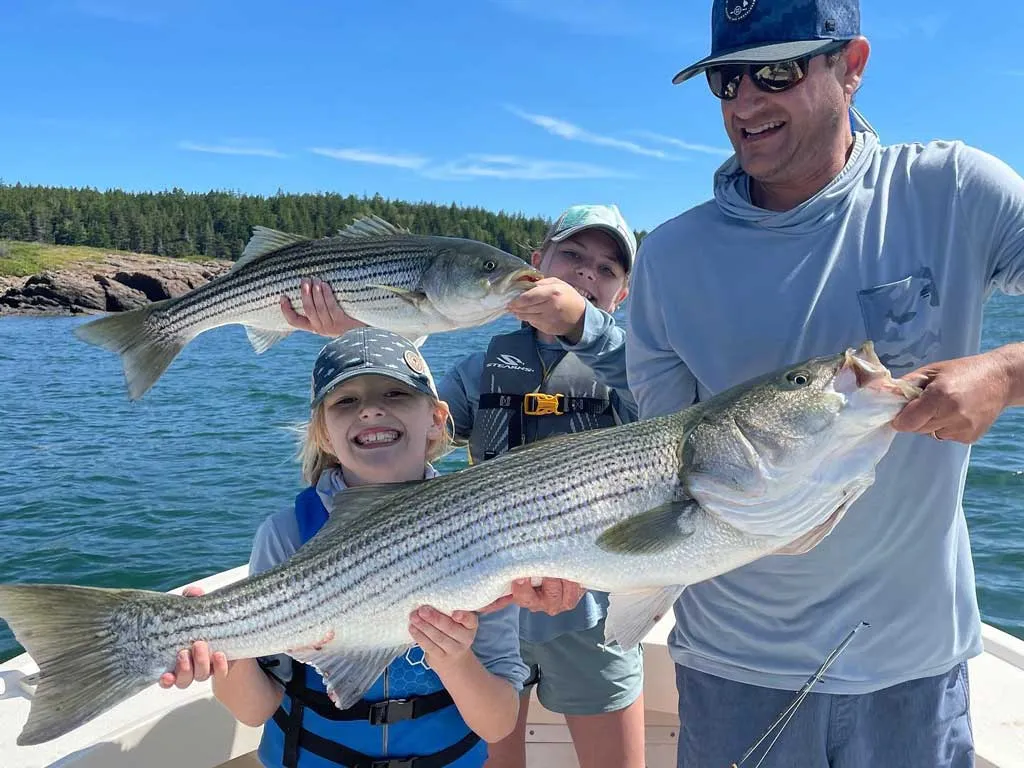
When is the best time to Acadia National Park Fishing?
Did you know, when it comes to things to do in Acadia National Park including Acadia National Park fishing, timing is key to maximizing your success and enjoyment. While the park offers year-round fishing opportunities, the best time to visit Acadia for both freshwater and saltwater fishing typically runs from late spring to early fall. Let’s break it down by season:
Spring (April – June): As the winter’s grip loosens and the ice melts away, Acadia’s freshwater lakes and streams come alive. Early spring, particularly April and May, is prime time for targeting brook trout. These vibrant fish become increasingly active as the water warms, offering exciting opportunities for fly fishing enthusiasts and those who prefer traditional spin casting. As June approaches and the water temperatures continue to rise, Acadia National Park fishing conditions improve even further, paving the way for a successful summer season.
Summer (June – August): Summer is undoubtedly the peak season in Acadia National Park fishing. The warmer waters trigger a feeding frenzy for both freshwater and saltwater species, making it easier to land a variety of catches. Whether you’re casting a line for brook trout, landlocked salmon, or smallmouth bass in the tranquil lakes and ponds, or venturing out to the coast to pursue mackerel, bluefish, or striped bass, the summer months offer an abundance of options. The pleasant weather and extended daylight hours also make for a truly enjoyable outdoor experience.
Fall (September – October): As the summer crowds dwindle and the leaves begin to transform into a vibrant tapestry of autumn hues, fishing in Acadia National Park in the fall scene takes on a different kind of magic. Fall can be a particularly rewarding time for trout fishing, as these fish prepare for the Acadia National Park in the winter months and become more active in their feeding patterns. The crisp air and stunning foliage provide a breathtaking backdrop for a peaceful day spent casting a line, making it a truly memorable experience.
While the late spring to early fall period offers the most consistent and productive fishing, it’s worth noting that dedicated anglers can find opportunities throughout the year. Winter ice fishing can be a unique and rewarding experience, and even during the shoulder seasons, there’s always a chance to land a lucky catch. However, for those seeking the optimal combination of pleasant weather, active fish, and diverse fishing opportunities, the late spring to early fall window is undoubtedly the prime time to experience the magic of Acadia National Park fishing.
Fly Fishing in Acadia National Park
Fly fishing is a cherished pastime for many fishing enthusiasts who visit Acadia National Park, especially in the park’s numerous freshwater lakes and streams. The tranquil waters found at locations like Echo Lake and Long Pond create perfect conditions for fly fishing, enabling anglers to apply a variety of techniques to successfully catch trout.
For those just starting out in the world of fly fishing, it is important to prioritize mastering fundamental casting techniques as well as understanding which types of flies are most effective for the fish species native to the region. Many local fly shops provide valuable resources such as classes and guided excursions designed for individuals eager to enhance their Acadia National Park fishing abilities. To ensure a rewarding fly fishing experience, it is crucial to have a lightweight fly rod and reel, complemented by a carefully chosen assortment of dry flies and nymphs that attract the desired fish.
Fishing regulations and permits in Acadia National Park
To Acadia National Park fishing, a valid Maine fishing license is necessary, although there may be exceptions, and the fees can differ. Individuals who are under 16 years old do not need to obtain a license. Those Acadia National Park fishing must adhere to the fishing license regulations set forth by the Maine Department of Inland Fisheries and Wildlife, as well as the Maine Department of Marine Resources.
A complimentary special use permit, which must be signed by the park superintendent or their representative, is needed to carry weapons, traps, or nets across park territory to reach the Great Ponds. Permit applicants must hold a valid State of Maine license for hunting waterfowl, trapping, and/or fishing to qualify for the permit.
Fishing regulations apply to all finfish present in both freshwater and saltwater, as well as to mollusks and crustaceans found in saltwater (shellfish) unless stated otherwise. Other species, such as amphibians, freshwater mollusks, and crustaceans (like water and crayfish) are not classified as “fish” according to NPS fishing regulations and fall under NPS rules concerning “wildlife” (36CFR2.2).
These fishing regulations are applicable on all lands and waters within the park that come under U.S. legislative jurisdiction, regardless of property ownership. However, these regulations do not extend to the Great Ponds, which are subject to regulation by the State of Maine.
Information can be found at: https://www.nps.gov/acad/planyourvisit/fishing.htm
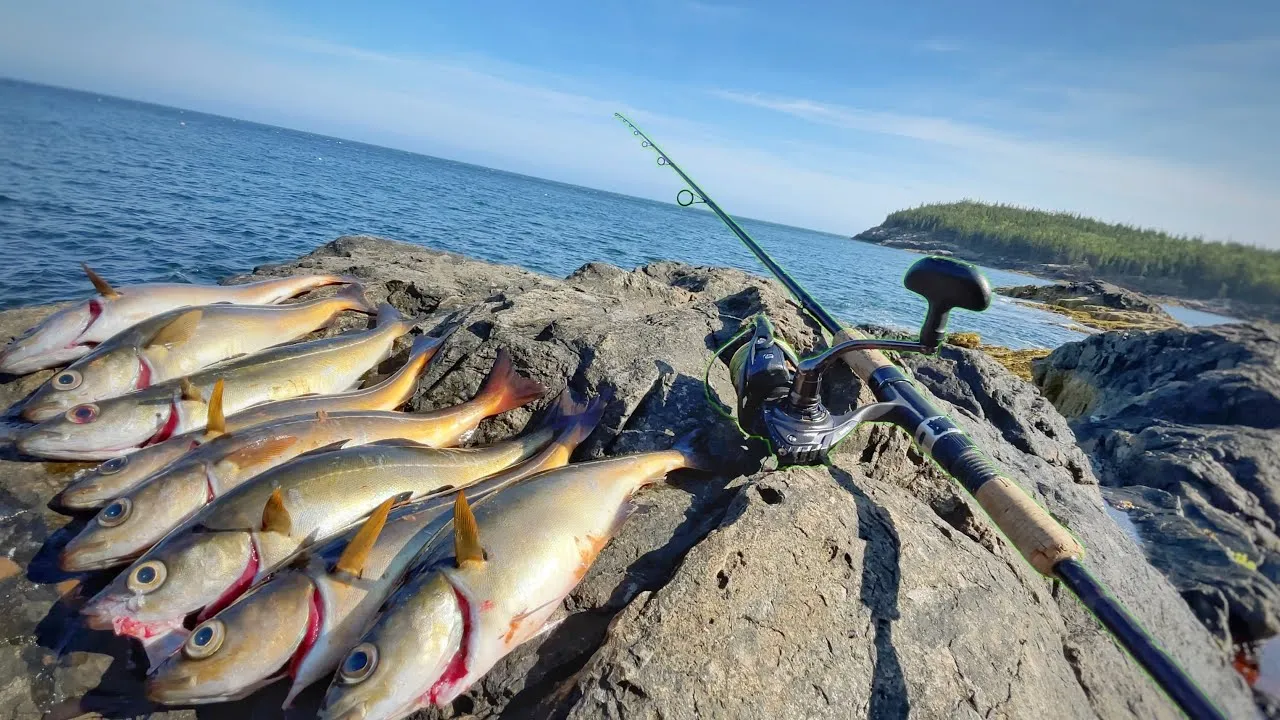
Support services and surrounding amenities
Planning a trip to Acadia National Park fishing is made even easier with the abundance of support services available to enhance your experience. Whether you’re a seasoned angler or a novice just starting out, you’ll find everything you need to make your trip a success. For those who prefer to travel light or are trying fishing for the first time, rental shops in nearby Bar Harbor offer a wide selection of fishing gear and supplies, including rods, reels, and bait. This eliminates the hassle of transporting your own equipment and ensures you have the right tools for the job.
If you’re looking to maximize your chances of landing a trophy catch, consider hiring one of the local fishing guides. These experts possess a wealth of knowledge about the park’s best fishing spots and techniques and can provide valuable tips and insights to ensure a successful outing. After a long day on the water, the charming town of Bar Harbor offers a range of amenities to cater to your needs, including delicious restaurants, comfortable accommodations, and a variety of shops to explore. With such convenient access to support services and nearby amenities, your Acadia National Park fishing adventure is sure to be both rewarding and memorable.
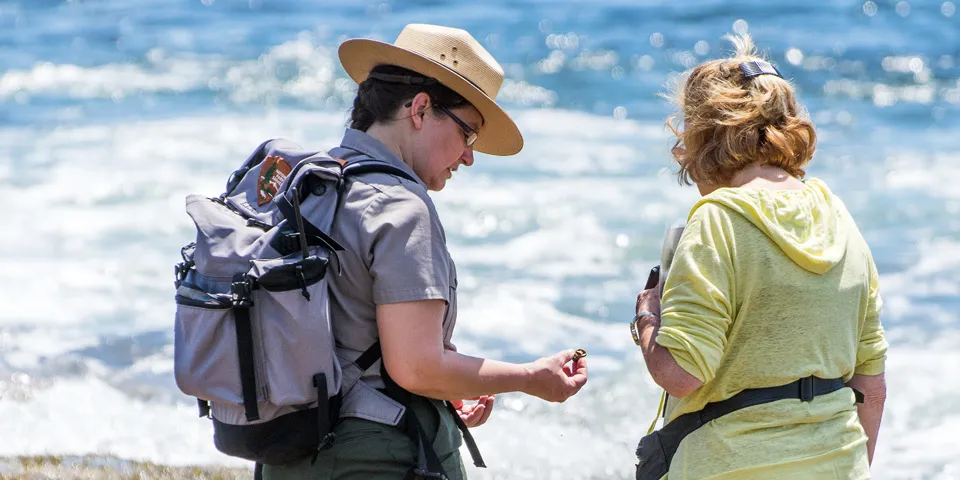
Acadia National Park Fishing tips and tricks for beginners
If you’re new to fishing, here are some valuable tips to enhance your experience in Acadia National Park:
- Research Local Species: Familiarize yourself with the types of fish available in the park and their preferred habitats. Understanding where to find them will increase your chances of success.
- Use the Right Gear: Ensure you have the appropriate fishing rod, reel, and bait for the species you’re targeting. Local tackle shops can provide recommendations based on current conditions.
- Practice Casting: Spend some time practicing your casting technique before heading out. Good casting can significantly improve your chances of catching fish.
- Be Patient: Fishing requires patience. Take the time to enjoy the serenity of nature while waiting for a bite. Remember, it’s not just about the catch; it’s about the experience.
- Observe the Environment: Pay attention to the weather and water conditions. Fish are often more active during certain times of the day, such as early morning and late afternoon.
Conclusion
Acadia National Park fishing is a rewarding experience that combines the thrill of the catch with the beauty of nature. With its diverse fish species and stunning landscapes, Acadia is a must-visit destination for anglers looking to create unforgettable memories. Whether you prefer the calm of freshwater lakes or the excitement of saltwater fishing, Acadia has something for everyone.
So pack your gear, respect the regulations, and get ready for a fishing adventure in one of America’s most beautiful national parks! I hope my experiences can provide you with useful information.
In addition to fishing, you can still explore many other activities at Acadia National Park such as: Acadia National Park climbing, Horseback Riding Acadia National Park, Biking in Acadia National Park,…

